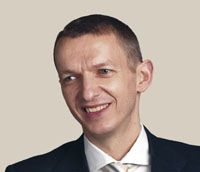The Bank of England’s Chief Economist, Andrew Haldane, who in June had said interest rates should be raised sooner-than-later, now says he favors raising them later-than-sooner. He used two cricketing terms – being “on the back foot” and “on the front foot” – that must have left some North American, Latin American and Asian (non-Indian/Pakistani/Sri Lankan) delegates wondering what he was talking about.
Mr. Haldane, who Time Magazine listed as one of the 100 most influential people in the world, gave a breakfast speech at the Kenilworth Chamber of Trade on Friday, and talked about developments in the labor market, and their implications for the UK’s monetary policy.
Recent evidence has changed Mr. Haldane’s forecasts for the UK and world economy. Several agencies and international organizations, including the IMF (International Monetary Fund), the World Bank, and the prestigious Ifo Institute, have reduced their global growth prospects, citing weak pipeline inflationary pressures, both from prices and wages internally, and externally from commodities and energy.
Andrew G. Haldane is the Bank of England’s Chief Economist, and Executive Director of Monetary Analysis and Statistics. (Photo: Bank of England)
Interest rates should stay low for longer
He is more pessimistic today about demand and believes that in the near term inflationary forces will weaken further. This implies that interest rates should stay lower for longer than central banks had expected three months ago, while at the same time not endangering the inflation target.
Mr. Haldane listed several positives regarding the British economy: it is growing faster than any other G-7 nation, has a good balance between consumption and investment, borrowing costs are at record lows, employment has increased by 1.8 million since hitting rock bottom following the financial crisis, while unemployment declined from 8.4% to 6% and is expected to continue falling.
He said the UK economy is in “fine fettle”. During the last 44 years, only 5 have fared better than this year.
However, he pointed to a different set of indicators which may give us reason to be fearful. Over the past 74 months, growth in real wages has been negative every month bar three, productivity levels are no better than they were in 2008, and real interest rates are virtually at zero.
He warns that this combination of negative economic outcomes is “virtually unprecedented going back to the late 1800s, with the exception of the aftermath of the world wars and the early 1970s.”
A twin-peaked economy
Mr. Haldane concluded that the British economy seems to be “writhing in both agony and ecstasy. It is twin peaked.”
The huge question today is which of these twin forces will win out. The Bank of England’s Monetary Policy Committee believes that productivity and real wage growth will reach about 2% annually by 2017.
Mr. Haldane warns that official forecasts by central bank committees have been confounded in the past. He also noted that the low level of expected interest rates implied pessimistic assumptions regarding future growth prospects.
Regarding the labor market, he said:
“The upper peak of the labor market is clearly thriving in both employment and wage terms. The mid-tier is languishing in both employment and real wage terms. And for the lower skilled, employment is up at the cost of lower real wages for the group as a whole.”
Regarding the implications of interest rates, Mr. Haldane suggests that investors in the financial markets need to weigh up the likelihood of Britain taking a weak or strong path. “Over the past few months, the implied path for interest rates has shifted down’. ‘One interpretation of that move is the market now assigning a somewhat higher probability to the lower peak.”


